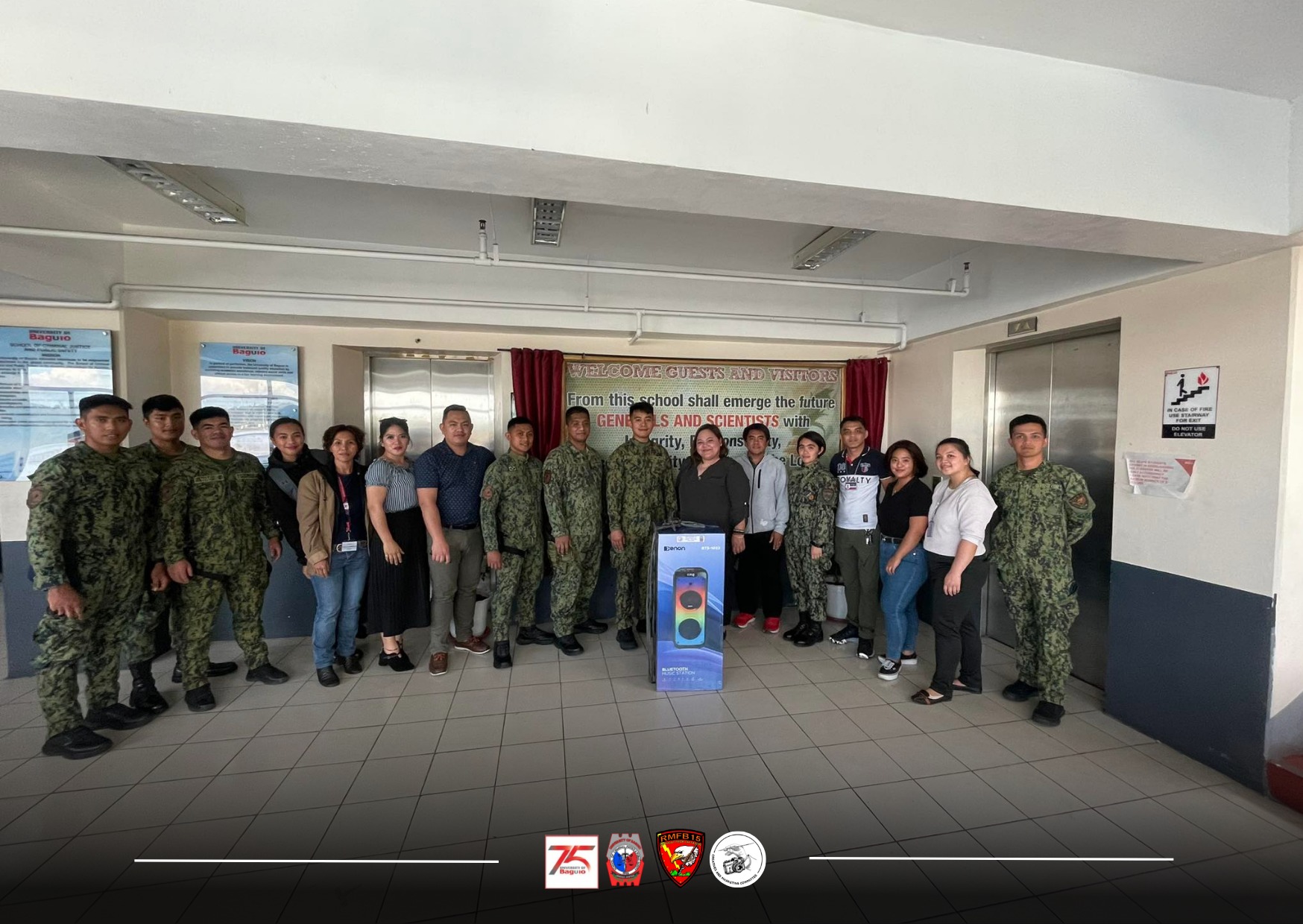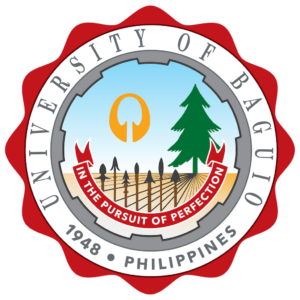The University of Baguio- Hazardous Waste Management Plan seeks to ensure and maintain a safe and secure environment for the management of hazardous wastes and materials. It also responds to the compliance requirement of the Department of Environment and Natural Resources Bureau (DENR- EMB) rules and regulations of RA 6969, also known as “Toxic Substances and Hazardous and Nuclear Wastes Control Act of 1990” which established guidelines that encompass the labeling, categorization and responsible disposal of different types of laboratory wastes.
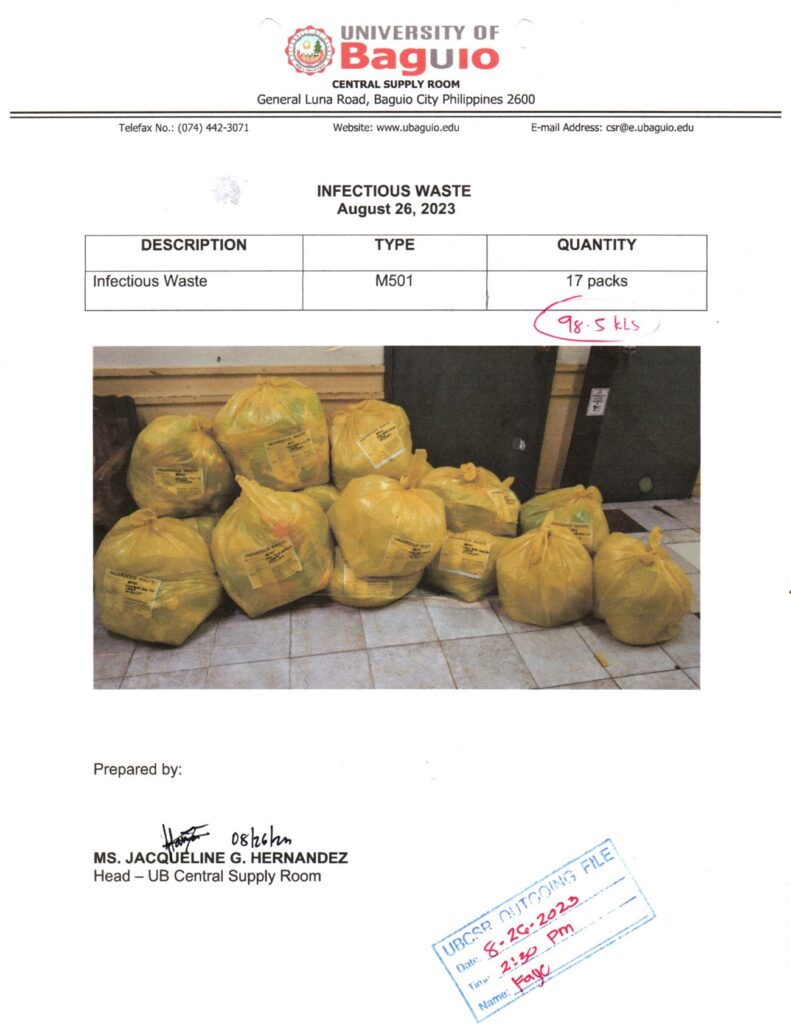
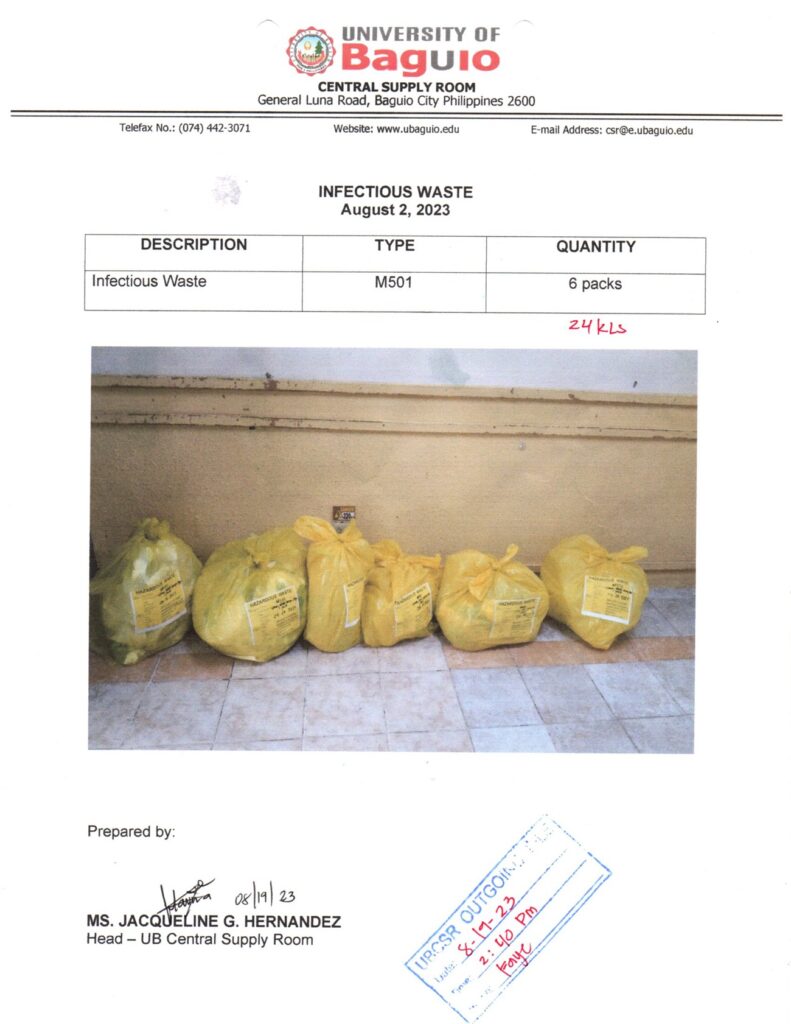
The University of Baguio is committed to maintaining programs, projects, and activities designed to prevent and reduce risks of hazardous wastes and materials by ensuring proper handling, transporting, treatment, and disposal (SDG No. 12: Proper Consumption and Production).
The Central Supply Room, from basic education to tertiary level, plays an important role in fostering innovation, promoting fun learning, and conducting relevant research. It is imperative that these laboratories follow waste disposal policies and guidelines mandated by the government, prioritizing safety and health and upholding ethical standards. In pursuit of scientific progress, proper waste disposal is not merely an obligation but also a moral responsibility.
The respective laboratories within the university must implement standard policies and guidelines for segregating types of waste to determine the hazardous and non-hazardous wastes. Hazardous materials such as chemicals, biohazards, and infectious wastes including electronic wastes are being disposed of following protocols to ensure the safety of both the employees and the environment. The UB Central Supply Room, in coordination with the university’s Pollution Control Officer, ensures that the hazardous wastes and materials are sorted and properly labeled before being disposed of at the Material Recovery Facility (MRF).
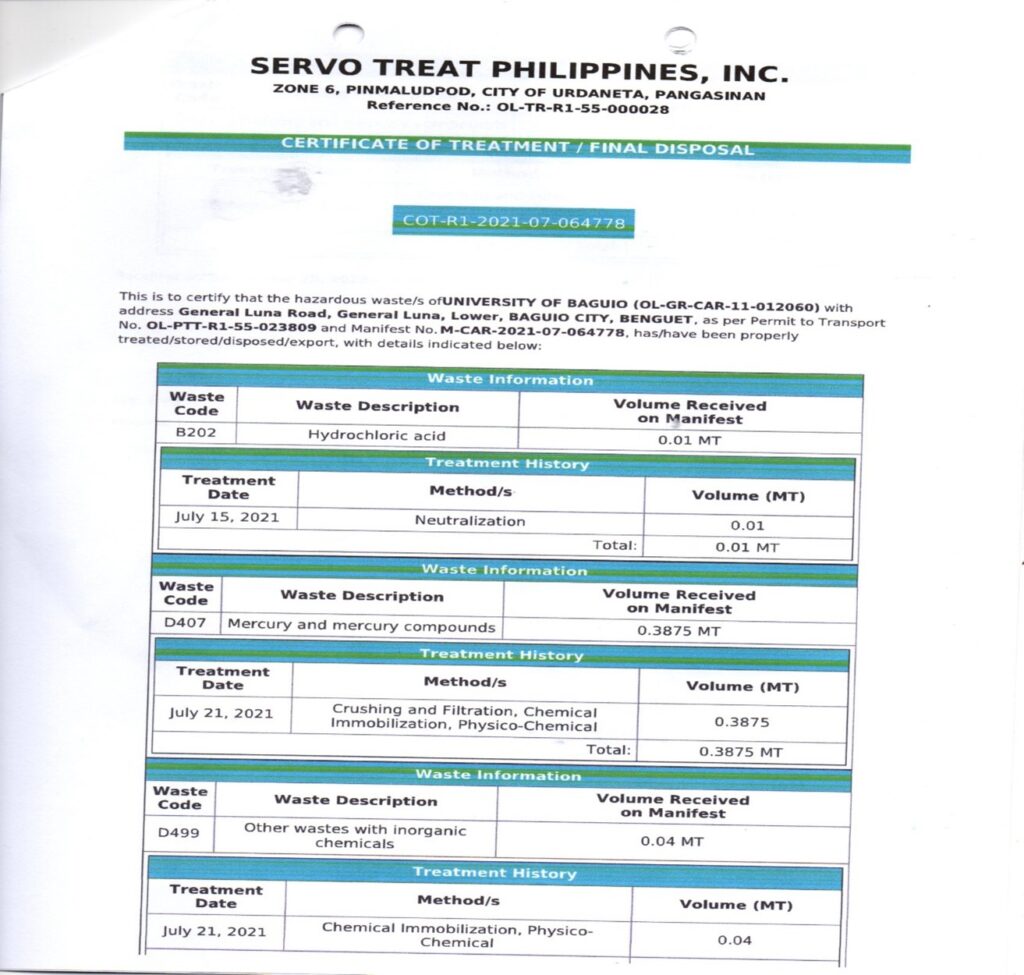
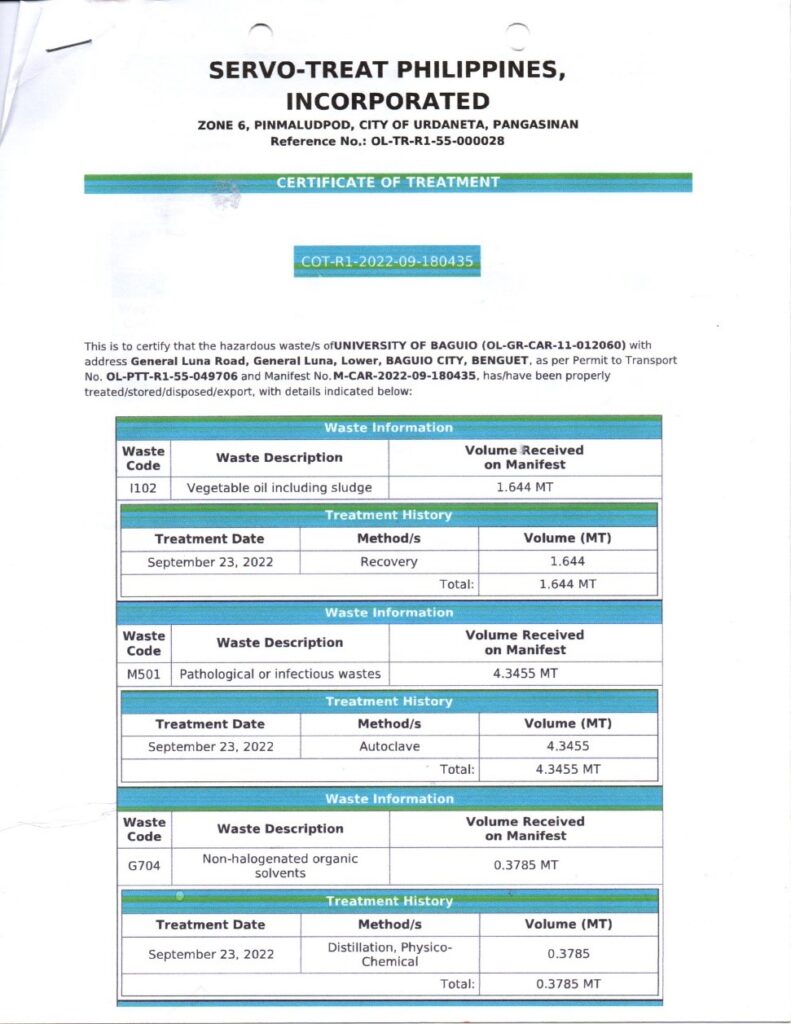
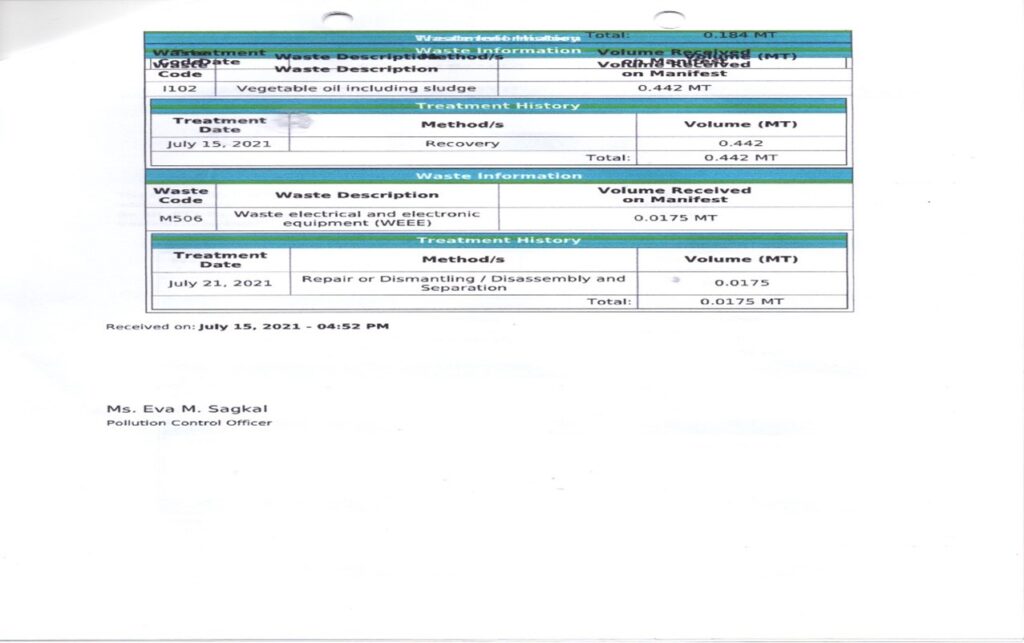
In promoting responsible waste disposal, it is crucial for laboratories to conduct training programs in information dissemination that would raise awareness among the faculty, staff, and students. Regular inspections and audits would be of help or assistance to the university to maintain its compliance with the government guidelines while identifying areas where improvements can be made.
In summary, universities must diligently abide by government policies and guidelines when it comes to managing laboratory waste. By doing so, they can contribute significantly to protection while fulfilling their commitment to scientific progress and advancement. This would now create an atmosphere that promotes excellence and responsible scientific investigation.
Written by CSR Laboratory Custodians




